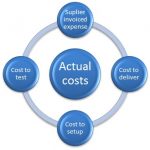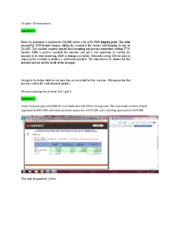
- Uncategorized
- August 9, 2021
- No Comments
10 Best Ecommerce Accounting Software For Easy Bookkeeping

Ecommerce accounting presents several issues, including managing sales tax liability across different jurisdictions due to the “economic nexus” rules. It also involves the complex task of inventory management that requires tracking the status and location of goods across possibly multiple warehouses or fulfillment centers. For an all-encompassing solution, consider the preparing the statement integrated bookkeeping service provided by StartGlobal. At $149 per month, you get seamless accounting that emulsifies your financial processes into one, easy-to-manage platform. This includes detailed financial reports, income and expenditure tracking, and proactive updates. StartGlobal’s solution is specifically designed to support ecommerce businesses, ensuring you stay on top of your financial game.
Cloud vs. Desktop
Its robust selection of reports gives you insights into your revenue, expenses and profitability. If you’re able to spring for the Plus or Advanced plans, you’ll also get access to inventory management features. If you are in the ecommerce business, one of the most important aspects of your accounting is sales tax compliance. Lots of accounting programs can calculate sales tax, but often you have to enter and file manually. Tax management for e-commerce stores can be difficult, but it’s much easier if you have accounting software to manage the process.
Supports Multiple Users
Worth considering if you’re looking for a comprehensive, manageable, and tailored financial management solution. QuickBooks Online is a popular, cloud-based ecommerce accounting solution designed for small to medium-sized businesses. One of its major strengths is the ability to integrate seamlessly with ecommerce platforms such as Shopify, WooCommerce, and BigCommerce.
Connect With Industry Leading Apps To Level Up Your Accounting
FreshBooks has multiple package options so you can pick the one that best suits your business needs and budget. A2X eliminates this problem by automating those breakdowns and integrating your sales channels with QuickBooks Online, Xero, or Sage. In-depth customer research is one of the essentials of being a successful ecommerce startup. Additionally, currency conversion and international tax regulations pose global challenges for businesses.
As an ecommerce entrepreneur, few things are more exciting than watching the money start to roll into your bank account. There are many options to choose from, so it can be nerve-wracking to determine which small business bookkeeping tools are necessary for your company. As you compare the options, keep in mind what features your business needs and what you can do without. Having all of your finances clearly in front of you in charts and graphs helps you visualize bookkeeping information.

FreshBooks gives you a simple to use accounting program that allows you to create professional looking invoices with ease. FreshBooks is a good choice for freelancers, solopreneurs, and sole proprietors with basic eCommerce accounting needs. While it lacks the customisability and complexity of similar software products, its easy-to-use interface and affordable pricing make it ideal for solo business owners and simple startups. Our research process considered the key challenges of who is the lessor and who is the lessee eCommerce accounting and how effectively the software solves them. We’ve also weighed up important buying factors such as cost, user experience, customer support, and product limitations.
Xero is also a great choice, although you may have trouble finding an independent Xero bookkeeper to work with you. For ecommerce businesses that use specialized equipment or machinery for production, you will appreciate Xero’s fixed asset management module. With it, you can accurately track your fixed assets, calculate depreciation, and manage disposals when needed. This means you can monitor the condition of your assets, which helps you plan for future replacements or upgrades.
- It should also allow you to track bills and purchase orders from your suppliers so you can keep tabs on the money going in and out of your business.
- We visited user review websites to read first-hand reviews from actual software users.
- Although e-commerce accounting software will typically let you choose either method, many default to accrual accounting.
- If you’re able to spring for the Plus or Advanced plans, you’ll also get access to inventory management features.
- One of the challenges most ecommerce businesses face is dealing with sales tax calculation and management, as tax laws vary by state, country, and even by product type.
- Zoho Books is a comprehensive platform for managing your bookkeeping tasks and organizing your transactions.
You’re often dealing with a high volume of orders across multiple sales channels, which creates unique challenges. An efficient eCommerce accounting software system is what are freight rates freight rates explained essential for accurate financial recording. Let’s look at the top small business accounting software you can use in your ecommerce business. Thankfully, ecommerce accounting is more than just homework for business owners.
